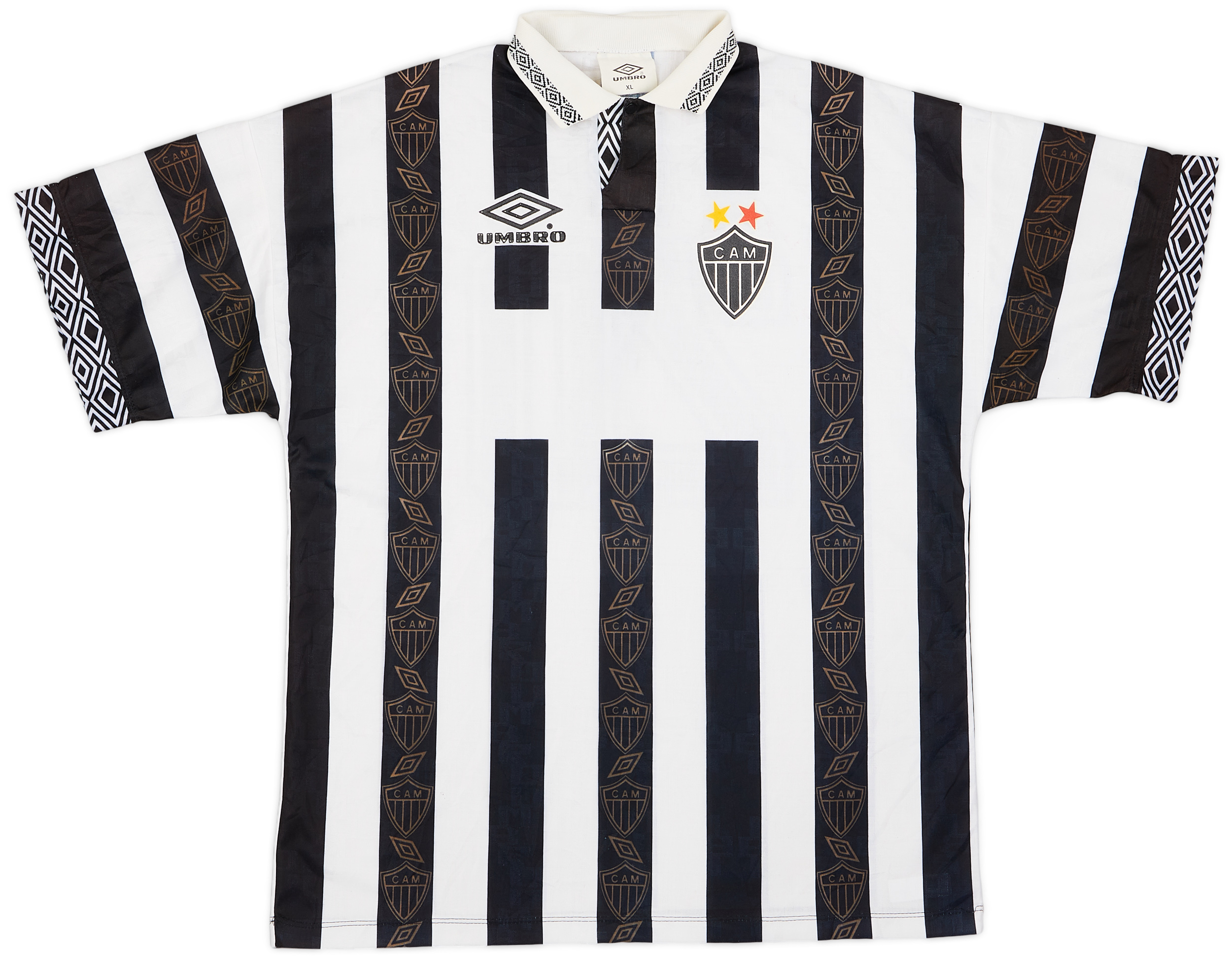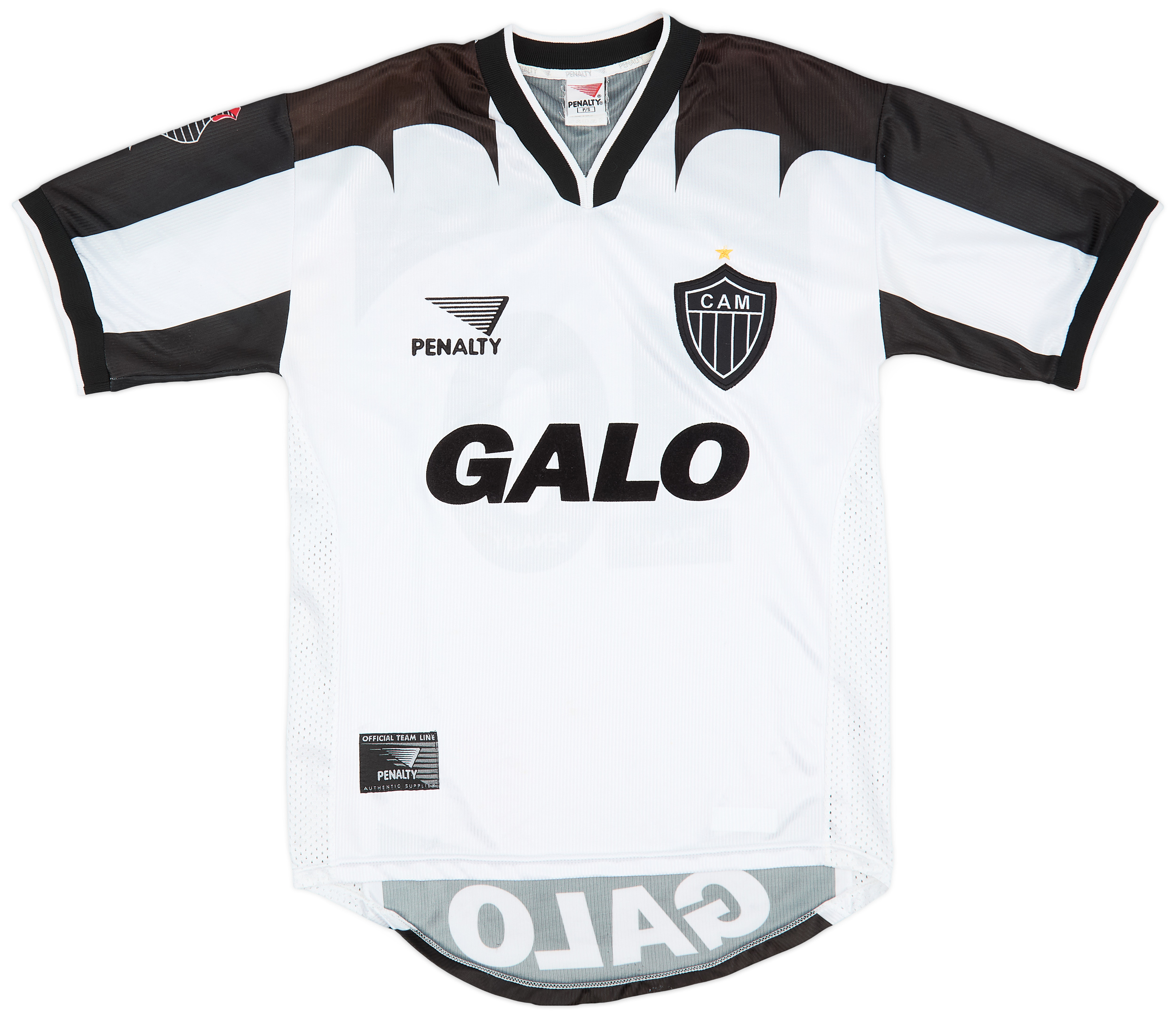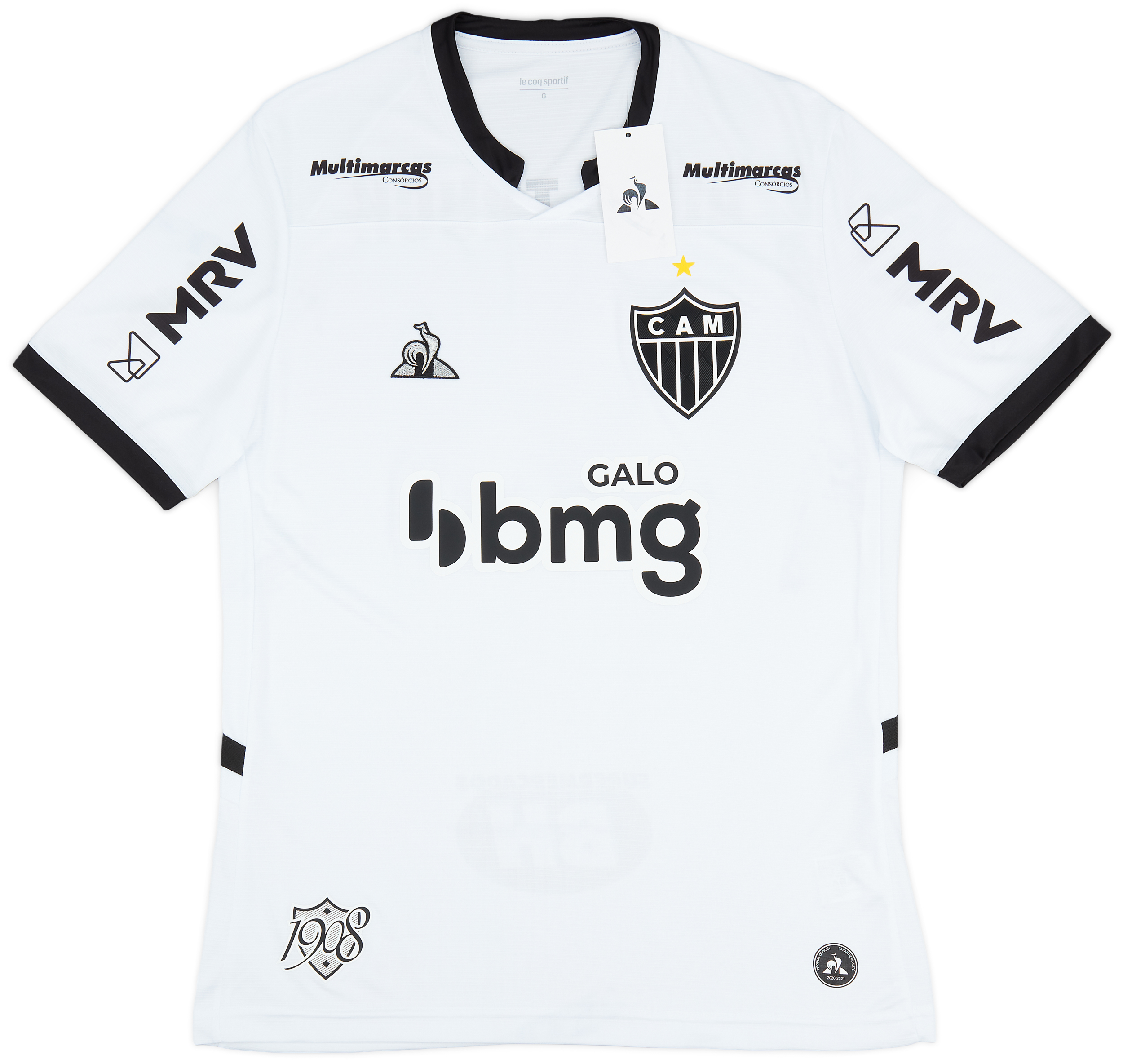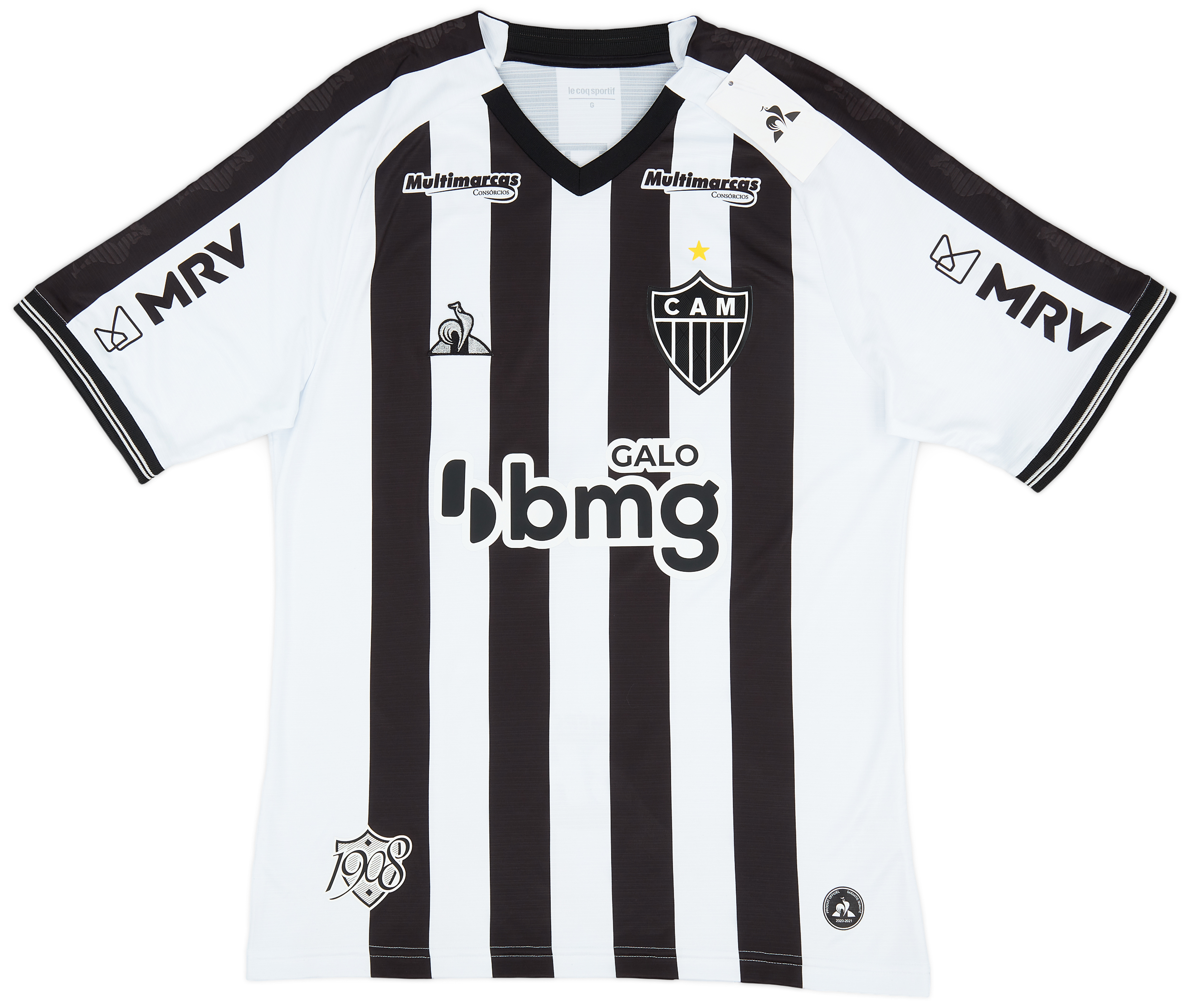Atletico Mineiro
Introduction Atletico Mineiro, commonly known as Galo (meaning “Rooster” in Portuguese), is one of Brazil’s most esteemed football clubs, with a rich history steeped in passion and loyalty. Founded in 1908 in Belo Horizonte, the capital of the state of Minas Gerais, Atletico Mineiro has developed a robust identity, stamped with a fierce rivalry, prominent […]
1997 Atletico Mineiro Home Shirt #9 - 10/10 - (XL)
207.99£ - ca: €245
1992 Atletico Mineiro Third Shirt - 8/10 - (L)
177.99£ - ca: €210
1998 Atletico Mineiro Home Shirt #9 - 8/10 - (L)
177.99£ - ca: €210
1997 Atletico Mineiro Home Shirt #9 - 8/10 - (XL)
177.99£ - ca: €210
1994 Atletico Mineiro Home Shirt #20 - 7/10 - (XL)
148.99£ - ca: €176
2000 Atletico Mineiro Away Shirt #10 - 8/10 - (S)
148.99£ - ca: €176
2002 Atletico Mineiro Home Shirt #7 - 7/10 - (L)
118.99£ - ca: €140
2004 Atletico Mineiro Alternate Home Shirt #10 - 9/10 - (XL)
94.99£ - ca: €112
2016 Atletico Mineiro Home Shirt #10 - 7/10 - (L)
70.99£ - ca: €84
2022 Atletico Mineiro Home Shirt (L)
58.99£ - ca: €70
2022 Atletico Mineiro Home Shirt (XL)
58.99£ - ca: €70
2008-09 Atletico Mineiro Lotto Training Shirt - 9/10 - (XL)
58.99£ - ca: €70
2020 Atletico Mineiro Away Shirt
47.99£ - ca: €57
2020 Atletico Mineiro Home Shirt
41.99£ - ca: €50
Introduction
Atletico Mineiro, commonly known as Galo (meaning “Rooster” in Portuguese), is one of Brazil’s most esteemed football clubs, with a rich history steeped in passion and loyalty. Founded in 1908 in Belo Horizonte, the capital of the state of Minas Gerais, Atletico Mineiro has developed a robust identity, stamped with a fierce rivalry, prominent successes, and a dedicated fan base. The club’s iconic black and white stripes and its motto “A Casa do Galo” resonate deeply in Brazilian football culture.
Club History
Atletico Mineiro was established by a group of sports enthusiasts, making its first strides in the local league structure only a year after its founding. The early years were marked by struggles against established clubs but soon transitioned into an era of notable success. The club secured its first Campeonato Mineiro title in 1914, a competition that has become integral to its identity. Over the decades, Atletico Mineiro has experienced highs and lows, including the challenge of a significant shift in Brazilian football dynamics during the mid-20th century. The 1960s proved to be a golden era, highlighted by the club’s first national championship victory in the 1971 Taça Brasil.
Achievements
Atletico Mineiro’s accolades are as impressive as they are numerous. The club has claimed the Campeonato Mineiro title over 45 times, making it the most successful team in the state league’s history. In addition to its domestic success, Atletico Mineiro has also enjoyed triumphs on the continental stage. In 2013, the club won its first Copa Libertadores, a landmark achievement underscoring its status as a top contender in South American football. The victory was celebrated with a dramatic penalty shootout against Clube Olimpia and solidified its place among Brazil’s elite clubs. Over the years, Atletico has also captured the Copa do Brasil once (in 2014) and the Supercopa Sudamericana, marking it as a formidable club within international football.
Significant Players and Matches
Atletico Mineiro has been home to numerous football luminaries whose talents have carved their names into the annals of the club’s history. Among these, the legendary striker Reinaldo Alves da Costa, known simply as Reinaldo, stands out. He was a goal-scoring machine in the late 1970s and early 1980s, becoming the top scorer of the Campeonato Brasileiro Série A in 1977 and 1980. The Brazilian footballing landscape also witnessed the brilliance of fans’ favorite, Diego Tardelli, who significantly contributed to the 2013 Libertadores campaign.
One cannot discuss the club’s legacy without referring to Gustavo “Mister” Silva, who played a significant role in the team’s vibrant footballing strategies throughout the ’60s and ’70s. Another defining moment in the club’s history came during the 1999 Copa do Brasil final, where Atletico Mineiro faced the solid team of Internacional. After a tense two-legged final, the match concluded with Atletico securing a memorable victory that echoed through the corridors of the club’s heritage.
Cultural Impact
Atletico Mineiro’s influence extends far beyond the footballing realm, deeply embedding itself in the culture of Minas Gerais and Brazil as a whole. Its passionate fan base, known as the “Atleticanos,” contributes to an electric atmosphere in the Estádio Mineirão, where hopes and dreams are shared. The club has fostered a sense of community, symbolizing local pride and resilience. Additionally, the vibrant matches often serve as a local festival, where generations of families gather to celebrate football. The famous chant “Eu sou Galo” (I am Rooster) resonates through the streets of Belo Horizonte, creating an environment of unity and excitement.
Conclusion
Atletico Mineiro’s place in football history is firmly established, marked by countless achievements, legendary players, and devoted fans. As it continues to navigate the competitive landscape of Brazilian football, its past successes serve as both a source of pride and motivation for future aspirations. The club’s legacy, characterized by a strong identity, passionate devotion, and a rich culture, ensures that Atletico Mineiro will remain a vital part of the beautiful game for generations to come.













